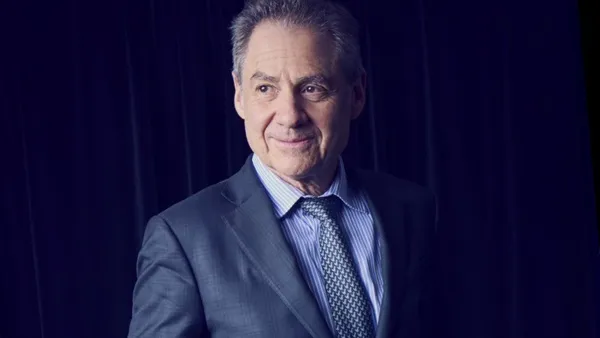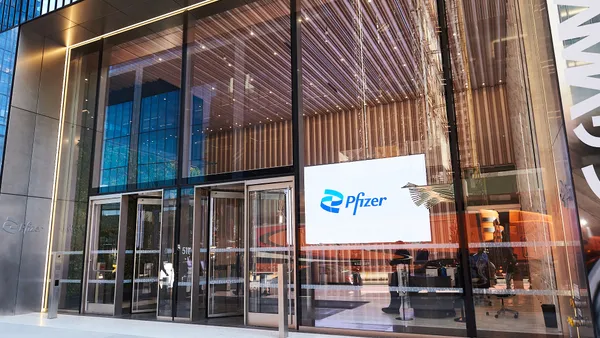Fewer new drug approvals, the political spotlight on the pharmaceutical industry, promotional budget cutbacks. What else can go wrong in the healthcare communications industry? Pitted against their more endowed competitors, small agencies may be wellsuited to survive in today’s adverse environment. They don’t carry huge overhead, are managed by seasoned managers, and are unencumbered by holding company mandates. Still, these agencies face specific barriers as they try to establish their voice and identity. AWARENESS — WHOAREYOU? Name recognition is one of the biggest obstacles facing the small agen cy. Available resources for selfpromotion are usually limited; however, anonymity is not inevitable. First, to show the world they can create pow erful brands, small agencies need to be branded themselves. The brand should be embedded in everything the agency does, internally and exter nally. This way, clients know what to expect from the agency. LEGITIMACY — WHATHAVEYOUDONE LATELY? The question really is, “What have the people who will be working on my account done?” Any agency can come in like the Chicago Bulls and talk of their many past wins. But what good is that if they set a client up with an unseasoned team like the postJordan Bulls? When hiring an agency, no matter what the size, a client is hiring about 7 to 10 people. The client should know who those people are and what they’ve done. If they’re good, it’s not important how many coworkers they have. INTEGRATEDSERVICES —WHATELSEDOYOUDO? Integrated services, i.e., onestop shopping for onestop marketing, has been the mantra of large agency conglomerates. The agencies have convinced themselves that this is appealing to big pharma because of the potential efficiencies that can be leveraged. Unfortunately, this strategy has not been proven to be efficient or particularly effective. Today, inte grated agency services are less about client needs and more about corpo rate mandates. Managers are required to cross sell the services of their sis ter companies. But, these sister companies maynot offer the best solution. When clients need services, small agencies can contract with the best provider for that particular assignment and manage the process the same way an agency would manage the job through an internal department. GLOBALNETWORK — AREYOUWORLDWIDE? Do GlobalAdAgency New York and GlobalAdAgency Madrid really work together? These are generally local agencies that share a name, a holding company and little else. A global brand requires a commitment on the part of the client. If they can get global buyin to promote one brand, they need to find an agency that can help them create it and man age its evolution. Then it’s up to the different markets to extend the brand to meet local needs. This doesn’t require a network of agencies. It requires an agency that understands what a global brand has to be. RELATIONSHIPS — DOESMYBOSSKNOWYOU? If you hire a small agency, your boss might even get to know you. These days, too many clients fear failure more than they covet success. It’s risk averse marketing. Choose the best agency for your brand, not the one that you can justify to your boss if things don’t go well. If an agency is the best one for the job, it should end there. If it is not, don’t hire them. Small agencies aren’t looking for handouts, they are looking to show the world that they are the best at what they do. CONSOLIDATION — WHAT’STHEPREFERREDLIST? Many pharmaceutical companies have limited their list to a few pre ferred agencies. A preferred list is a financial concept driven by the premise that agency output is all pretty much the same. The assumption is that larger and established agencies could be pressured for more favor able terms. That’s an improper, brandthreatening assumption. The irony is that small agencies can sometimes give a better bang for the buck. Their cost structure is more favorable because of a lower overhead and independent status. When a company limits the competition for its business, it limits the hunger of its agencies. Why limit the potential success of the brand by choosing between the five usual suspects when there is a choice of more than 50 agencies? RESOURCES — CANYOUMAKE IT HAPPEN? Some clients assume that if an agency is small, it lacks the muscle to make it happen. The ability to provide highlevel advertising and promo tional services is the price of entry into the market. The resources an agen cy has directly correlate to the needs of its clients. Any agency, large or small, will adjust to fit the account. There is a perception, however, that large agencies have resources waiting for a client that needs them. This is not true. No agency, in fact, no business carries extra resources just in case. The bottom line is, any agency worth its salt will get the client what it needs if it can afford it. The question clients should be asking is, “Is the agency smart enough to know what I need based on my budget?” STABILITY — AREYOUGOINGTOBEAROUND? Agency stability does not necessarily correlate to size. Some of the largest agencies recently have undergone major restructuring. At small agencies, each employee is highly committed to the success of the agency. Choosing an agency isn’t a simple choice based on size or any one factor. It is a multidimensional decision, and it is one of the most important ones that a marketer makes. The agency that looks best on paper may not be the best for the long road ahead. Rico Viray is a partner at The CementWorks, a fullservice independent health care advertising agency located in New York. F PharmaVoice welcomes comments about this article. Email us at feed [email protected]. Contributed by Rico Viray F RICO VIRAY WHY BIG PHARMA SHOULD BE LOOKING FOR THE BEST FIT, NOTTHE BIGGEST AGENCY IS SIZE ALL THAT MATTERS?
An article from












